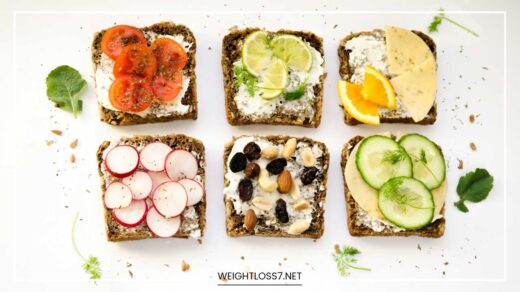Why Diets Don’t Work

Diets
Why Diets Don’t Work: Ditch the Cycle, Embrace Food Freedom
The diet industry thrives on a constant loop of dissatisfaction and empty promises. We’re bombarded with quick fixes and unrealistic before-and-after pictures, leaving us feeling like failures when the inevitable weight regain hits.
But what if the problem isn’t us, but the system itself? This blog post delves into the reasons why diets often sabotage long-term weight loss and explores a path towards food freedom and sustainable health.
The Deceptive Allure of Dieting
Diets offer a seductive escape from the complexities of healthy eating. They promise a magic bullet solution, a set of rules that guarantee weight loss without the need for self-awareness or lifestyle changes.
This initial appeal can be strong, especially for those struggling with their weight or body image. However, this seemingly straightforward approach masks a cycle of deprivation, frustration, and ultimately, failure.
The Unsustainable Cycle of Restriction
Dieting often follows a predictable and disheartening pattern:
-
The Restrictive Phase: Thrown headfirst into a world of “good” and “bad” foods, you eliminate entire food groups or drastically cut calories. This creates feelings of hunger, fatigue, and intense cravings for the very foods deemed “off-limits.”
-
Initial Weight Loss (But Not What You Think): You might see some weight loss on the scale, but this is often due to water weight loss or muscle loss, not sustainable fat loss. Muscle loss can actually hinder long-term weight management by slowing down your metabolism.
-
The Craving Monster Awakens: As deprivation continues, cravings intensify. The forbidden foods become all-consuming, leading to feelings of guilt and shame when you “cheat.” This can trigger episodes of binge eating, further eroding your confidence and self-compassion.
-
Metabolic Rebellion: Your body, a marvel of adaptation, responds to calorie restriction by becoming more efficient with energy. This metabolic slowdown makes it harder to lose weight and easier to regain it later.
-
The Frustration and the Give-Up: Feeling discouraged and deprived, you eventually abandon the diet, often regaining the lost weight and sometimes even more. This cycle can leave you feeling defeated and hopeless about achieving your health goals.
Beyond the Scale: The Science of Why Diets Don’t Work
Understanding the science behind why diets backfire is essential for breaking free from their cycle. Here’s a deeper look at the physiological and psychological factors:
-
Hormonal Havoc: Dieting disrupts the delicate balance of hormones regulating hunger and satiety. Leptin, the “feel-full” hormone, decreases, while ghrelin, the hunger hormone, increases. This hormonal rollercoaster leaves you feeling constantly hungry and struggling to feel satisfied.
-
Metabolic Mischief: As your body perceives calorie restriction as a threat to survival, it adapts by slowing down your metabolism. This makes it harder to burn calories and lose weight over time.
-
The Psychology of Deprivation: The restrictive nature of diets fosters a sense of deprivation and guilt. This can lead to unhealthy fixations on food, increased stress, and a negative body image. The constant battle against cravings can be mentally and emotionally draining.
Food Freedom: A Sustainable Approach to Healthy Eating
Instead of falling prey to the diet trap, consider these strategies for building a sustainable and healthy relationship with food:
-
Embrace Intuitive Eating: This approach encourages listening to your body’s internal cues of hunger and fullness. Eat when you’re physically hungry and stop when you’re comfortably satisfied. Relearn how to trust your body’s natural wisdom.
-
Befriend Whole, Unprocessed Foods: Fill your plate with a rainbow of fruits, vegetables, whole grains, lean protein sources, and healthy fats. These nutrient-dense foods provide your body with the building blocks it needs to function optimally and keep you feeling full for longer.
-
Practice Mindful Eating: Slow down and savor each bite. Pay attention to the taste, texture, and aroma of your food. This mindful approach allows you to appreciate your meals and avoid mindless overeating.
-
Cultivate Body Positivity: Shift your focus from how your body looks to what it can do. Celebrate its strength, resilience, and the amazing things it allows you to experience. Embrace a healthy body image that’s not dictated by the latest fad diet.
-
Make Sustainable Changes: Aim for gradual, long-term adjustments that fit seamlessly into your lifestyle. Start by incorporating more vegetables into your meals, increasing your water intake, or adding a daily walk. Small, sustainable changes add up over time.
Remember: Weight loss is a complex issue influenced by genetics, environment, lifestyle habits, and overall health. It’s not just about “calories in, calories out.” A holistic approach that addresses both physical and mental well-being is crucial for lasting success.
Seek Professional Support:
If you’re struggling with weight management or have a complicated relationship with food, consider seeking guidance from a registered dietitian or therapist.
A registered dietitian can create a personalized eating plan that takes into account your individual needs and preferences.
They can also provide education on healthy eating habits and portion control. A therapist can help you address any underlying emotional issues that may be contributing to unhealthy eating patterns.
Embrace the Journey: Food Freedom Takes Time
Food freedom is not a destination, but a journey. There will be setbacks and moments of temptation. Don’t view these as failures, but as opportunities to learn and adjust your approach.
Practice self-compassion and remember that progress is rarely linear. Here are some additional tips to support your journey towards food freedom:
-
Become a Kitchen Magician: Cooking more meals at home allows you to control ingredients and portion sizes. Experiment with new recipes and discover healthy and delicious ways to nourish your body.
-
Hydration is Your Ally: Drinking plenty of water throughout the day can help curb cravings, keep you feeling full, and promote overall health. Aim for eight glasses of water daily, adjusting based on your activity level.
-
Manage Stress Wisely: Chronic stress can trigger unhealthy eating habits. Find healthy ways to manage stress, such as yoga, meditation, spending time in nature, or connecting with loved ones. Prioritize relaxation techniques that work for you.
-
Don’t Deprive Yourself Completely: Allow yourself occasional treats in moderation. This helps prevent feelings of deprivation and promotes a balanced approach to eating. Enjoy a small piece of your favorite dessert without guilt, and savor the experience.
-
Find Movement You Enjoy: Regular physical activity complements healthy eating for overall well-being. Find an exercise routine you genuinely enjoy, whether it’s dancing, swimming, hiking, or team sports. Consistency is key, so choose activities you can realistically integrate into your lifestyle.
Empowering Your Food Freedom Journey: Building a Support System and Resources
Building a healthy relationship with food is an ongoing process. Here’s how to create a supportive environment and explore resources that can empower your journey towards food freedom:
Building Your Support System:
-
Find Your Tribe: Surround yourself with people who support your goals and promote body positivity. This could be a friend who enjoys cooking healthy meals with you, a workout buddy, or a supportive online community.
-
Seek Professional Help: As mentioned earlier, consider consulting a registered dietitian or therapist. They can provide personalized guidance and address any underlying emotional or behavioral issues related to food.
-
Connect with a Health Coach: A certified health coach can offer additional support and accountability as you navigate food freedom. They can help you set realistic goals, develop healthy habits, and overcome challenges.
Exploring Resources:
-
Books: There are a wealth of books available on intuitive eating, mindful eating, and body positivity. Some recommended titles include:
- “Intuitive Eating” by Evelyn Tribole and Elyse Resch
- “Body Positive” by Jessica Knoll
- “Mindful Eating” by Susan Albers
-
Podcasts: Several podcasts delve into intuitive eating, healthy living, and body acceptance. Some options include:
- “Food Psych with Christy Harrison”
- “Maintenance Phase” by Aubrey Gordon and Michael Hobbes
- “Body Kindness” with Meghan Rienks
-
Websites and Social Media: Follow registered dietitians, intuitive eating coaches, and body positive influencers on social media. Look for credible websites with evidence-based information on healthy eating and weight management.
-
Apps: There are apps available to help you track your meals, practice mindful eating, and connect with a supportive community. However, be cautious of apps that promote calorie counting or restrictive dieting.
Remember: When seeking resources, prioritize those that promote a balanced and sustainable approach to food and health. Focus on positive reinforcement and building a healthy relationship with yourself and your body.
Final Thoughts:
Food freedom is not about achieving a certain size or number on the scale. It’s about cultivating a peaceful and intuitive relationship with food.
It’s about honoring your body’s needs, celebrating its strengths, and nourishing it with delicious and nutritious foods.
By embracing food freedom, you can break free from the cycle of dieting and embark on a lifelong journey of health and well-being.
Remember, you are worthy of feeling good in your own body, and you have the power to make sustainable changes that nourish you from the inside out.
Live a Life Nourished by Food, Not Ruled by Diets
Ditch the diet mentality and embrace a sustainable approach that nourishes your body and mind. By developing a healthy relationship with food, listening to your body’s cues, and adopting sustainable lifestyle changes, you can achieve lasting results and feel empowered to take control of your health.
Remember, health is not just about the number on the scale, it’s about feeling good, having the energy to pursue your passions, and fostering a deep sense of self-compassion. Embrace food freedom and start living a life fueled by healthy choices, not restrictive rules.

















